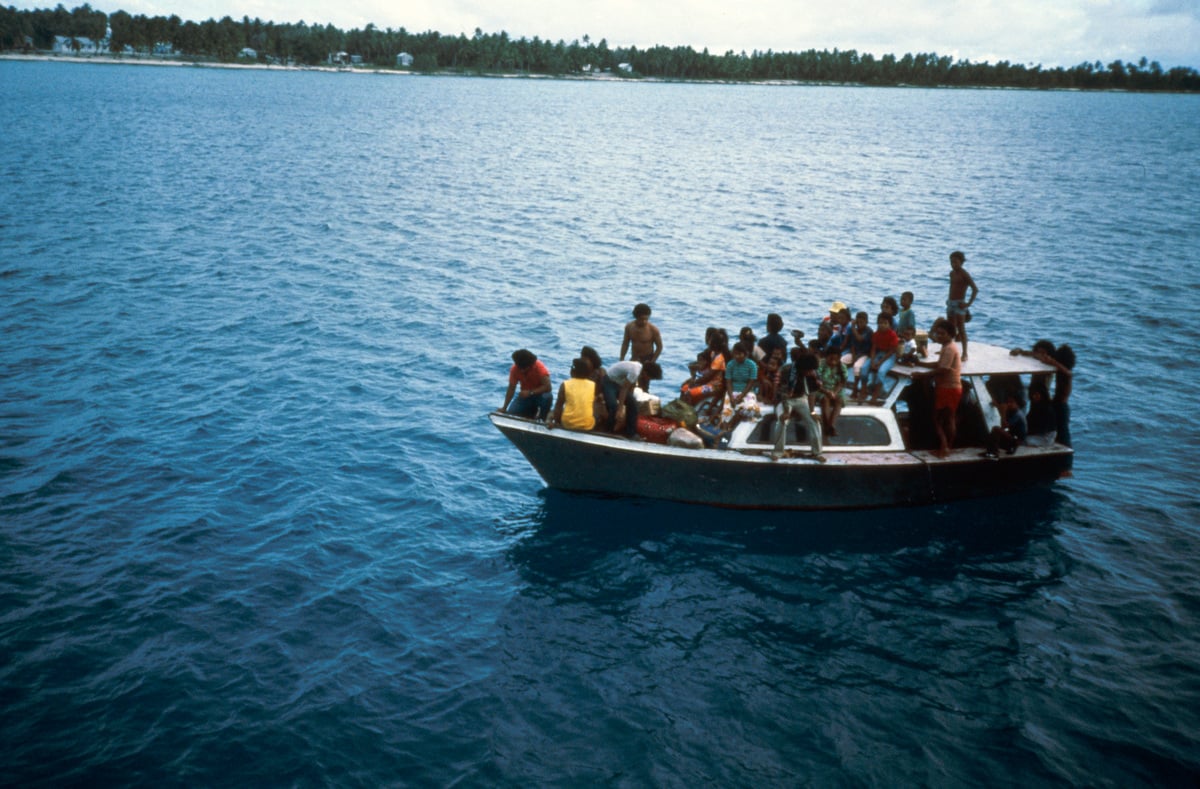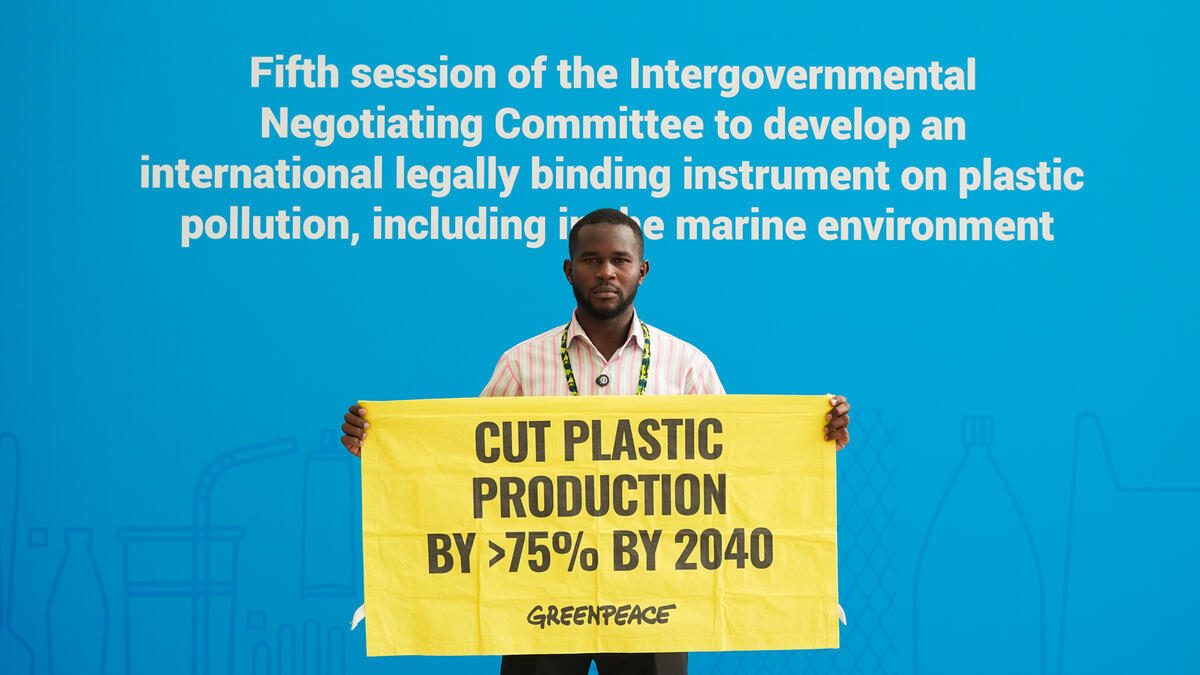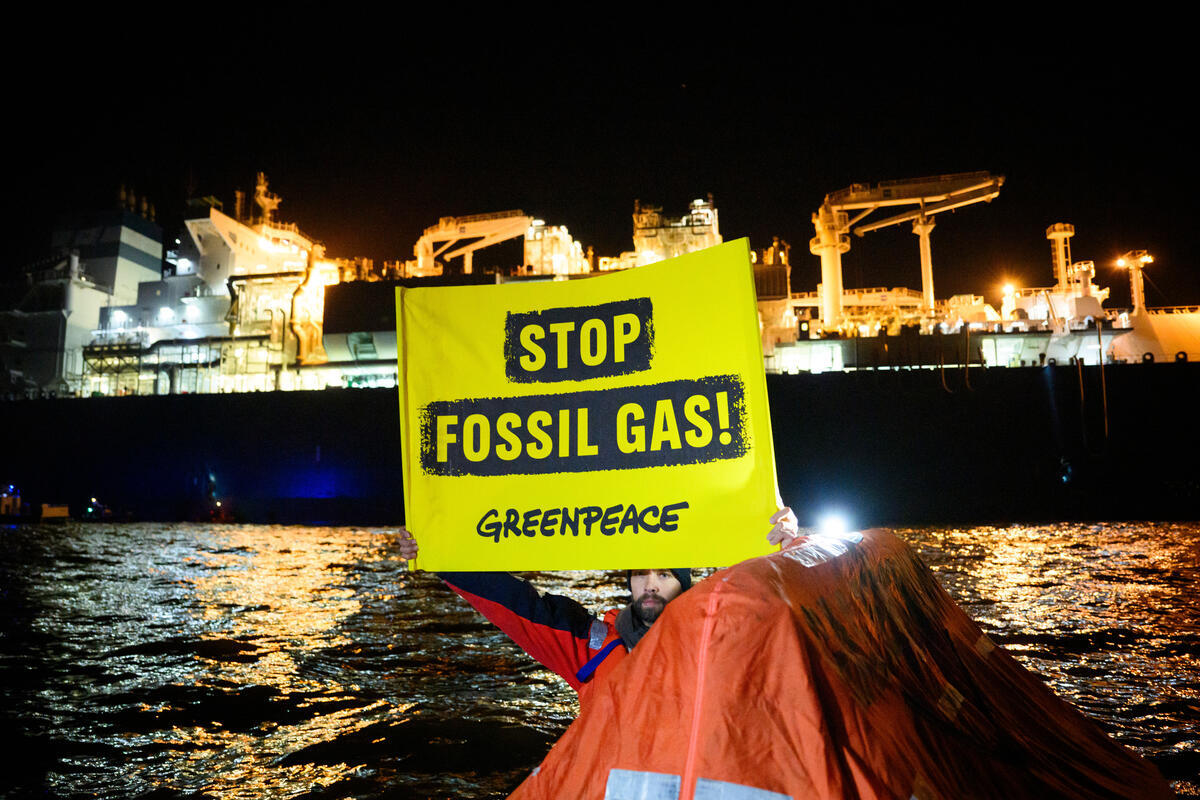All articles
-
New year, same fight. 5 things that happened at the November 2024 Global Plastics Treaty negotiations in Busan, South Korea
The fifth round of negotiations for a new Global Plastics Treaty to end plastic pollution finished in Busan, South Korea on 1st December 2024. Here is a rundown of the highlights from the talks, including why we didn’t come away from the meeting with a treaty.
-
Trump gas? No, thanks! European activists protest the arrival of US fracked gas
22 Greenpeace activists from Germany are protesting the arrival of a tanker loaded with liquefied fossil gas (LNG) from the United States, entering the port of Brunsbüttel.










